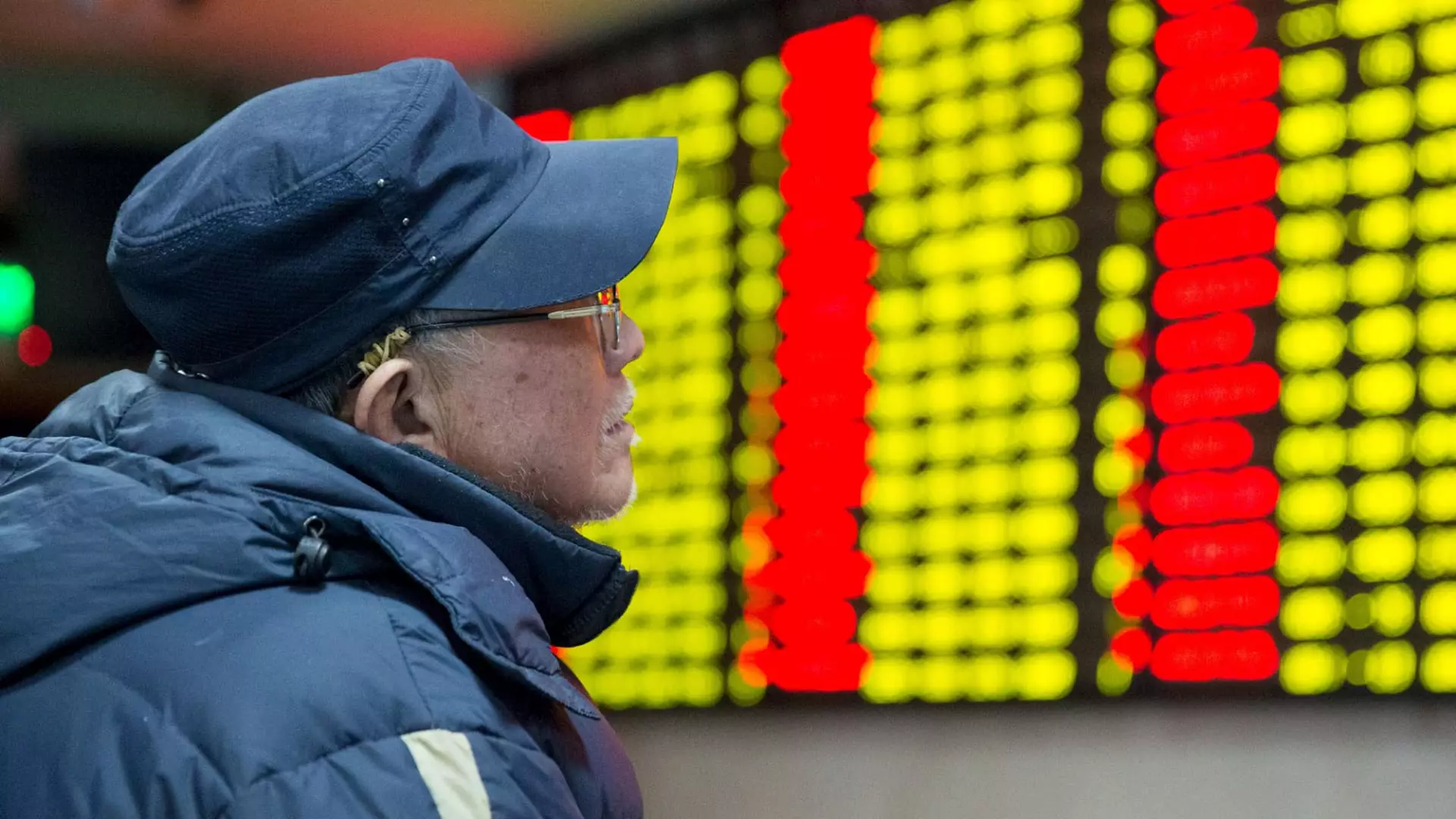China’s Economic Renaissance: Analyzing the Stock Market Surge

In an unexpected twist, China’s stock market has demonstrated remarkable resilience, bolstered by government initiatives aimed at revitalizing the economy. After a disheartening start to the year that saw the CSI 300 index plummet to six-year lows, recent policy shifts have reinvigorated investor sentiment, laying the groundwork for what some analysts now consider a significant opportunity in the Asian market. The CSI 300 rallied more than 15% in a single week, marking its best performance since 2008 and drawing attention from hedge funds and strategists alike.
Wendy Liu, the chief China equity strategist at JPMorgan, recently implied that strategic investments in high-quality businesses may lead the charge in this economic recovery. Her insights underscore a growing belief that although the stock index may still fluctuate, well-performing companies can rebound ahead of the overall market. This distinction highlights the essentiality of selecting fundamentally robust stocks to navigate this volatile environment.
Investment professionals are increasingly identifying undervalued stocks as potential goldmines amidst the prevailing market struggles. JPMorgan has spotlighted three specific stocks with a favorable outlook: Tsingtao Brewery, retail powerhouse Miniso, and machinery firm Zhejiang Dingli. These selections reflect a strategic emphasis on finding entities that exhibit solid fundamentals yet remain underrated in the current market climate.
The strategic reasoning behind this focus on quality stocks is apparent in the context of shifting economic policies. Rupal Agarwal, a director and quantitative strategist at Bernstein, noted in a recent statement that now might be a prime opportunity to augment exposure to the Chinese market. However, she cautions that while enthusiasm is warranted, investors should remain vigilant for clear indicators suggesting a turnaround in property sentiments and consumer behaviors.
In light of the renewed investor interest, sectors reporting substantial growth potential have become focal points for analysts. Tal Education and Seres, which specializes in electric vehicles (EVs), have emerged as promising prospects due to their impressive earnings momentum. This strategic emphasis on firms benefiting from burgeoning domestic demand aligns with a broader narrative of prioritizing resilient sectors capable of thriving, even amid economic fluctuations.
Amid ongoing discussions regarding U.S.-China trade relations, prominent hedge-fund manager David Tepper voiced his confidence in Chinese equities, stating that their valuations offer an appealing proposition compared to U.S. stocks. Tepper’s rationale highlights an essential perspective: as China pivots towards domestic economic stimulus, the perceived value gap between Chinese and American companies becomes increasingly significant.
Central to this market turnaround are the recent monetary policy shifts orchestrated by China’s leadership. The People’s Bank of China (PBOC) implemented significant rate cuts, indicating a clear signal of commitment to economic stabilization. This move was further echoed by a high-level meeting chaired by President Xi Jinping that focused on halting the ongoing slump in the real estate sector, amplifying fiscal and monetary policy efforts.
As traders respond to this newfound optimism, short-term capital inflows into Chinese stocks surged to unprecedented levels. Goldman Sachs observed a notable shift in sentiment, with hedge funds increasing their allocations to these equities while unwinding positions in other markets. This trend reflects a broader reassessment of the attractiveness of Chinese stocks amid evolving economic conditions.
While opportunities abound, risks remain, underscoring the inherent volatility of the Chinese market. Many investors are cautious of a potential relapse, especially considering the uncertainty surrounding the formalization of extensive fiscal policies. Previous engagements with the international market have demonstrated how shifts in investor confidence can quickly reverse, leading commentators to urge a tempered approach.
Major trading activity in mainland Chinese stocks often revolves around retail investors, whose interests can fluctuate dramatically in response to governmental policy shifts. Observers like finance blogger Li Dongfang noted that while the market has traditionally rebounded post-policy support, sustainability will necessitate continued momentum in various sectors, including property and key consumer goods.
China’s recent stock market performance marks a potential inflection point as a combination of strategic investments in quality businesses and supportive governmental policies coalesce. While the road ahead may feature bumps, the re-emerging narrative around Chinese equities reflects a growing belief in the country’s capacity to recover and thrive. Investors are encouraged to adopt a nuanced approach, balancing optimism about potential rebounds with an awareness of the complexities inherent in the rapidly evolving financial landscape. As China commemorates its 75th anniversary, its economic trajectory—and the role of its stock market—may be poised for transformative growth.





